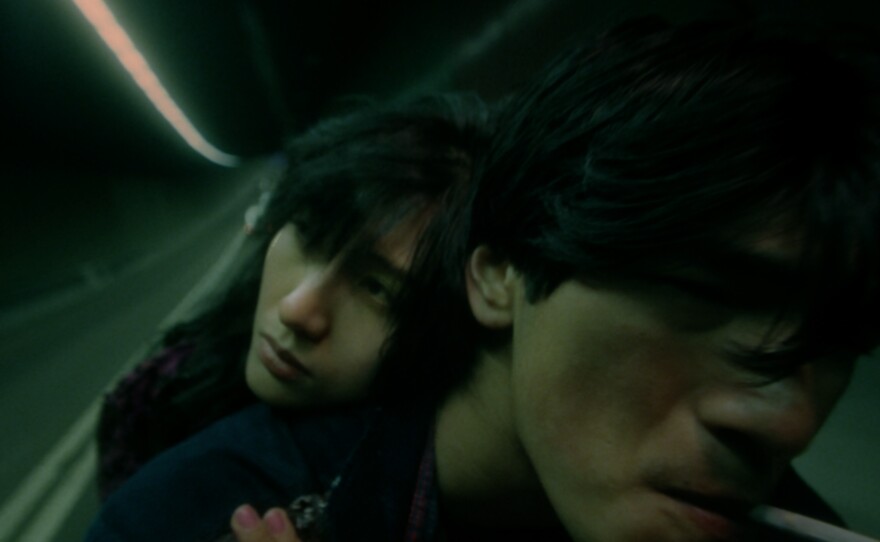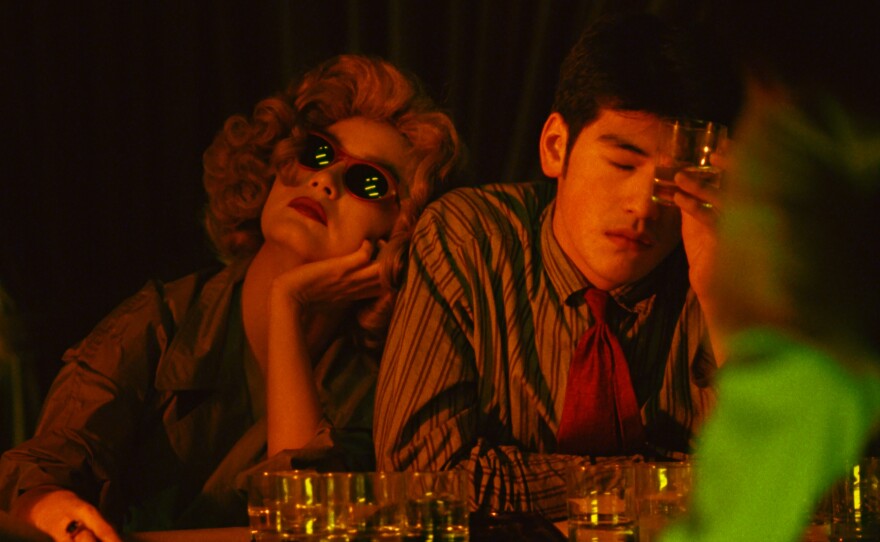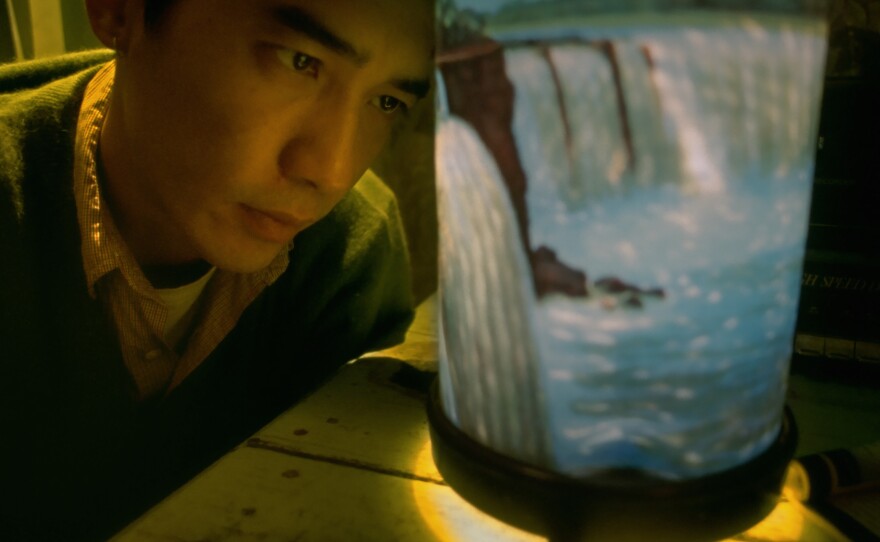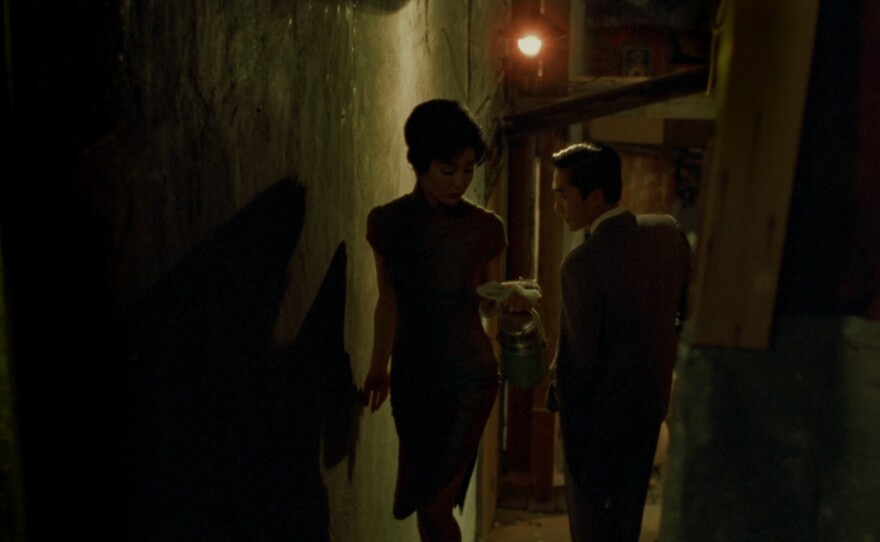The World of Wong Kar Wai
"As Tears Go By" (1988)
"Days of Being Wild" (1990)
"Chungking Express" (1994)
"Fallen Angels" (1995)
"Happy Together" (1997)
"In the Mood for Love" (2000)
"The Hand" (2004) (Director’s Cut)
On Christmas Day "The World of Wong Kar Wai" was released. It is a collection of seven restored films by the Hong Kong director and will be available through Digital Gym Cinema (DGC@Home) for the next month.
When it comes to romance, I’m a cynic, but there is one contemporary filmmaker who can make me swoon and that’s Wong Kar Wai. Since his directorial debut in 1988, Wong has been sweeping audiences off their feet with his intoxicating style. If his films — “As Tears Go By,” "Happy Together,” "In the Mood for Love, "Fallen Angels" — sound more like song titles maybe that's because he thinks of them as cinematic jam sessions.
"We are just like a group of musicians, jazz band and I'm like the band leader, I have a session and I just call up everybody and they just come over and we have a jam session," he told me in a 1995 interview.
Although each film has a distinctly different rhythm, they all riff on similar themes of love, loss, desire and the possibility and impossibility of love. Their style is characterized by handheld camera work, quick cuts, odd angles and a distinctive blurred slow motion that's become Wong's visual signature. Wong said that in a sense he's making a single epic work.
"Each film I make is just like a sequence in that long film," Wong said. "I'm not sure what that long film is intended to be and I just love them all."
And so do I. Now audiences have an opportunity to enjoy seven of them together as part of "The World of Wong Kar Wai." The seven titles are available for the next month through DGC@Home and you can enjoy them as chapters in Wong's epic saga.

The films have all been restored but it goes beyond just digitally upgrading them to 4K resolution. In the press materials Wong explains how he approached this restoration: "During the process of restoring many of the pictures that you are about to watch, we were caught in a dilemma between restoring them to the form in which the audience had remembered them and to how I had originally envisioned them. There was so much that we could change, and I decided to take the second path, as it would represent my most vivid vision of these films."
So aspect ratios and sound mixes may be different than you remember. Part of the challenge too was that in the early days of the Hong Kong New Wave many fans experienced these films as bootleg VHS tapes because they were not being widely distributed in the U.S. in the 1980s and early 1990s. But Wong now has the rare opportunity to finesse these films to his liking. But fear not, this is not like George Lucas tampering with the "Star Wars" films.

If you have never seen a Wong Kar Wai film this is a perfect opportunity to immerse yourself in his cinematic world.
His films offer mood rather than plot and sweep you up with their intoxicating images. Wong's films are not romantic in the Hollywood mold. His films are about aching romantic longings.
In "Days of Being Wild," a man is condemned to aimless wandering in search of the woman he will love best. In "Chungking Express," two young men try to forget, with great difficulty, the women who have dumped them.
In Wong's world, a single moment can change a life forever and a missed opportunity can haunt his characters for the rest of their lives. The longing in his films feels tangible as if it were a character of its own.
Sometimes the tone is light and playful as in Wong's multi-character romance "Chungking Express." A cop is dumped by his girlfriend on April Fool's Day and every day for a month he buys a can of her favorite pineapple, which will expire on May 1, the deadline he's given for her to return. When she misses her deadline, the lovesick lad consumes all the fruit and then gets plastered at a bar where he decides to pick up a mysterious woman. Wong adds an unexpected charm that his earlier films did not have. Here the characters wallow in their lovelorn agony in a sly variation on the long-suffering lovers of his earlier films. Wong even allows for the possibility of happiness, at least for one of the couples.
But happiness proves elusive in the 2000 film "In the Mood for Love." The film stars Maggie Cheung as Lizhen and Tony Leung as Mo-wan, who move into the same apartment building on the same day and find their belongings mixed up. Wong fills the cramped hallways and narrow streets where they pass with a palpable sense of desire and longing. Every detail in the film from the wallpaper to the fabric of Lizhen's dresses to the music playing on the radio contributes to the lush romanticism of the film.

Wong's films often play like densely layered, exquisitely clever music videos where image and music blend seamlessly to create a mood. Nat King Cole sets the tone for "In the Mood for Love" but the tango defines "Happy Together" while the Mamas and the Papas' "California Dreaming" informs the lovers of "Chungking Express."
Although each film has a unique personality, Wong's body of work reveals a fascination for similar themes. His expressionistic visual style — whether it's the blurred slow motion of "Chungking Express" or the slow, steady, voyeuristic shots of "In the Mood for Love" — conveys the emotions of his characters and dictates the atmosphere of his film. His films ask you to surrender to their breathless romanticism. Even a cynic like myself is helpless to resist.
"The World of Wong Kar Wai" is from Janus Films and is being co-presented in San Diego by Digital Gym Cinema and Pacific Arts Movement. Whether you are a longtime fan of Wong's films or completely new to them, this collection provides an amazing cinematic experience to enjoy from quarantine.








